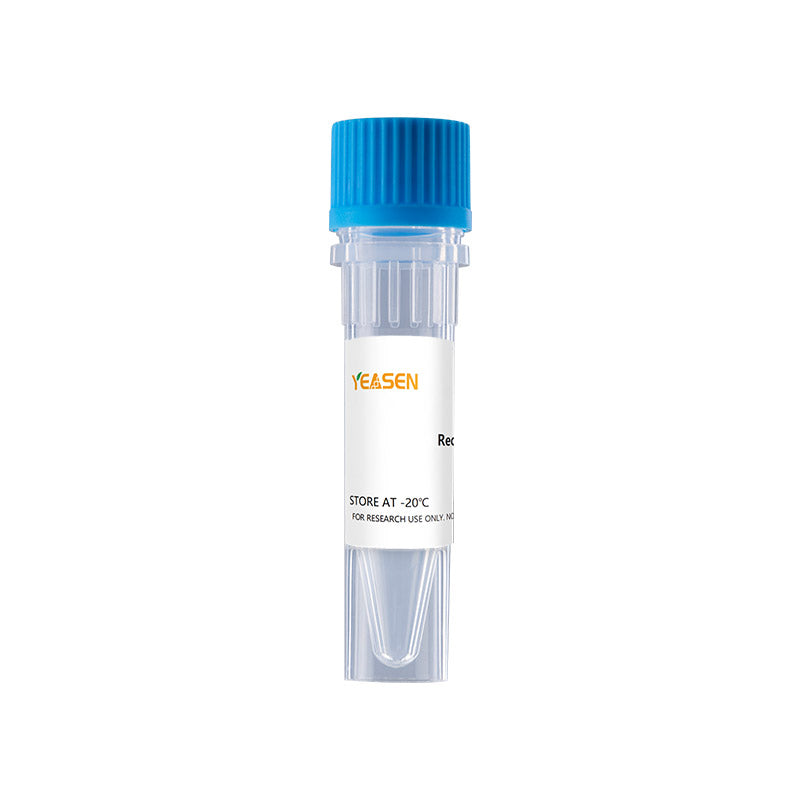Description
CXCL4, also called PF4, is a small cytokine belonging to the CXC chemokine family and it is also known as chemokine (C-X-C motif) ligand. Mature mouse CXCL4 shares 76%, 88%, 64%, 64% and 63% amino acid sequence identity with human, rat, ovine, porcine and bovine CXCL4, respectively. Recombinant mouse CXCL4 contains 76 amino acids which is a single non-glycosylated polypeptide chain. CXCL4 can be antiproliferative and antiangiogenic, at least in part via interfering with FGF-2 and VEGF heparin binding and thus inhibiting their signaling. Tumor tissue revealed up-regulation of CXCL14 in cancer-associated fibroblasts of a majority of prostate cancer. Fibroblasts overexpressing CXCL14 promoted the growth of prostate cancer xenografts, and increased tumor angiogenesis and macrophage infiltration.
Product Properties
|
Synonyms |
chemokine (C-X-C motif) ligand 4, C-X-C motif chemokine 4, CXCL4, CXCL4iroplact, Iroplact, MGC138298, Oncostatin-A, PF4, platelet factor 4 |
|
Accession |
|
|
GeneID |
|
|
Source |
E.coli-derived mouse PF-4/CXCL4 protein, Val30-Ser105. |
|
Molecular Weight |
Approximately 8.2 kDa. |
|
AA Sequence |
VTSAGPEESD GDLSCVCVKT ISSGIHLKHI TSLEVIKAGR HCAVPQLIAT LKNGRKICLD RQAPLYKKVI KKILES |
|
Tag |
None |
|
Physical Appearance |
Sterile Filtered White lyophilized (freeze-dried) powder. |
|
Purity |
>97% by SDS-PAGE and HPLC analyses. |
|
Biological Activity |
The biological activity determined by a chemotaxis bioassay using human neutrophils is in a concentration of 10-100ng/ml. Fully biologically active when compared to standard. |
|
Endotoxin |
< 1.0 EU per 1μg of the protein by the LAL method. |
|
Formulation |
Lyophilized from a 0.2 μm filtered concentrated solution in 20 mM PB, 1.5 M NaCl, pH 7.4. |
|
Reconstitution |
We recommend that this vial be briefly centrifuged prior to opening to bring the contents to the bottom. Reconstitute in sterile distilled water or aqueous buffer containing 0.1% BSA to a concentration of 0.1-1.0 mg/mL. Stock solutions should be apportioned into working aliquots and stored at ≤-20℃. Further dilutions should be made in appropriate buffered solutions. |
Shipping and Storage
The products are shipped with ice pack and can be stored at -20℃ to -80℃ for 1 year.
Recommend to aliquot the protein into smaller quantities when first used and avoid repeated freeze-thaw cycles.
Cautions
1. Avoid repeated freeze-thaw cycles.
2. For your safety and health, please wear lab coats and disposable gloves for operation.
3. For research use only!
Payment & Security
Your payment information is processed securely. We do not store credit card details nor have access to your credit card information.
Inquiry
You may also like
FAQ
The product is for research purposes only and is not intended for therapeutic or diagnostic use in humans or animals. Products and content are protected by patents, trademarks, and copyrights owned by Yeasen Biotechnology. Trademark symbols indicate the country of origin, not necessarily registration in all regions.
Certain applications may require additional third-party intellectual property rights.
Yeasen is dedicated to ethical science, believing our research should address critical questions while ensuring safety and ethical standards.

